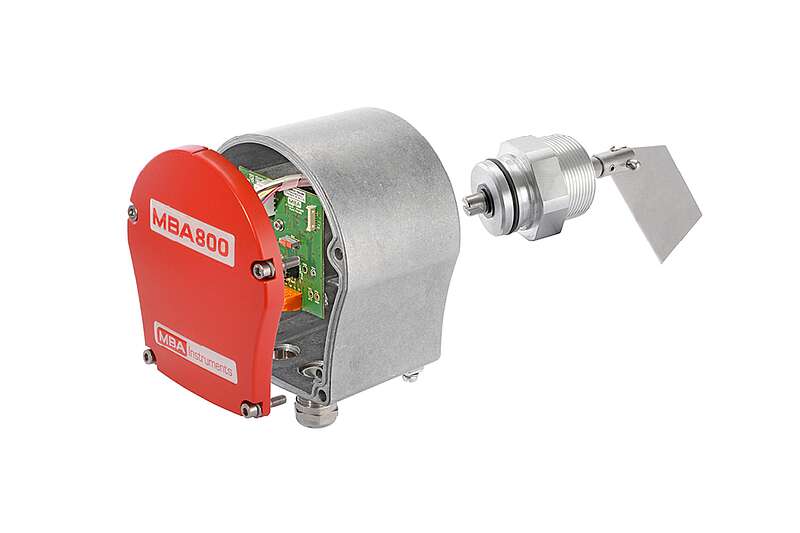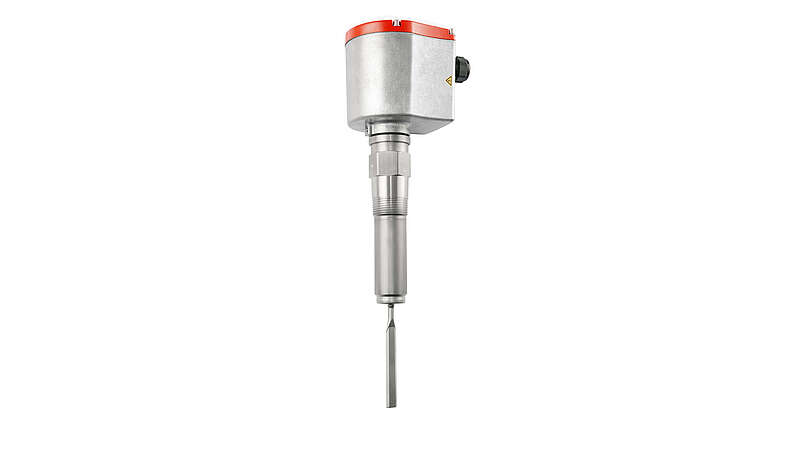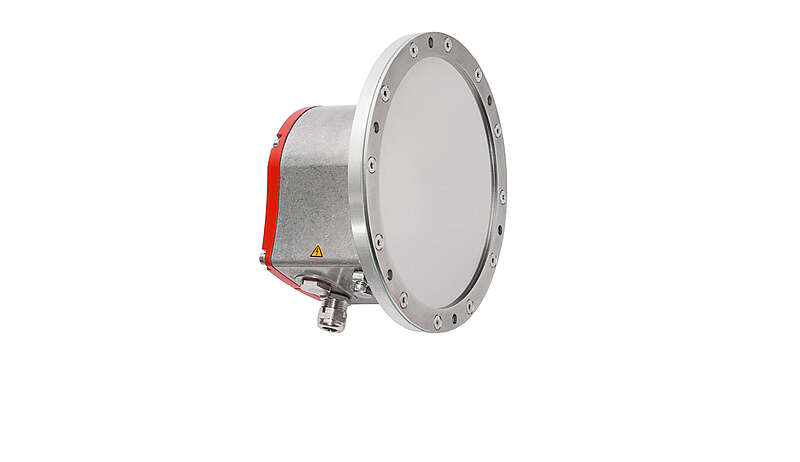Precise level measurement in flour silos
Flour is a basic component of many foods. Accordingly, bulk solids are often part of various production processes in the food industry and are stored in special silos for this purpose.
On site in particular, all individual production steps must always be carried out without delay. This requires that all required raw materials are always provided in the required quantity. The individual types of flour are stored in silos with very narrow chambers. In order to be able to produce the desired mixture of the respective types, reliable level measurement is required.
Our measurement technology has been developed to deal with dust and air currents without compromising the accuracy of the measurements.
Level Switches
Precision, reliability and efficiency in food production
In order to be able to plan production lines accordingly, the silo systems must be continuously monitored. As flour is a medium that generates a lot of dust, level measurement is a challenging task.
MBA's measurement technology offers an innovative solution here. By using state-of-the-art sensor technology, we can measure the fill levels in the narrow silo chambers precisely and reliably, even under the most demanding conditions.
Thanks to sophisticated level switches, they are able to reliably interpret the reflective properties of the bulk solids and thus provide exact information about the fill level in the silos.
MBA's measurement technology is not only extremely precise, but also extremely robust and durable. It has been specially developed for use in the food industry and fulfils the highest quality and hygiene standards.
Our level switches are easy to install and maintain, which helps to keep production processes running smoothly and efficiently.
In this way, the appliance makes an important contribution to ensuring continuous production operations. In this way, we help to ensure the quality of your food products and increase the efficiency of your production facilities.
Our rotating paddle detectors fulfil all the requirements for measuring flour in silos and other containers. In particular, their high resistance to vibrations makes them the best choice for level measurement.
Rotary paddles for flour silos
The innovative rotating paddle detector series from MBA impresses with its state-of-the-art safety technology with stepper motor technology. The level detectors are reliable and versatile. Depending on the specific requirements in your flour silo, they can be used as full, on-demand or empty detectors.
Challenges of level measurement in flour silos
Flour is the collective term for powdery substances that are produced by grinding, milling or pulverising cereal grains. A large proportion of flour production is used to make bread. Other products include pasta such as noodles.
The grain is ground in a grain mill. The flour is stored at temperatures below 20 °C and a humidity of less than 65 per cent. Under these conditions, flour can be stored for up to 1.5 years without any loss of quality.
Flour consists of fine particles of the respective source material. Stored in a silo, however, it becomes compact. A rotating paddle detector can very reliably detect the fill level here. The distribution of flour dust in the air results in a mixture that can explode if ignited. Due to the potential risk of explosion, it is important to avoid the formation of dust during flour transport and storage.
Flour also tends to cake. This can lead to bridging or layering on the silo wall. To prevent this, pneumatic knockers can be installed on the silo wall. Our measurement technology measures without any problems, even at high vibrations.
In the food industry, flour silos are used by both flour mills and large industries. The demands placed on food manufacturers are extremely high, particularly with regard to hygiene standards.
Both in the manufacture of the products and in storage, appropriate hygiene regulations must be observed in connection with the raw materials. One of the greatest losses to a milling operation is when finished goods are contaminated with foreign particles such as stones, sand or plastics. Tightness can be guaranteed by manufacturing the silos in one piece.






